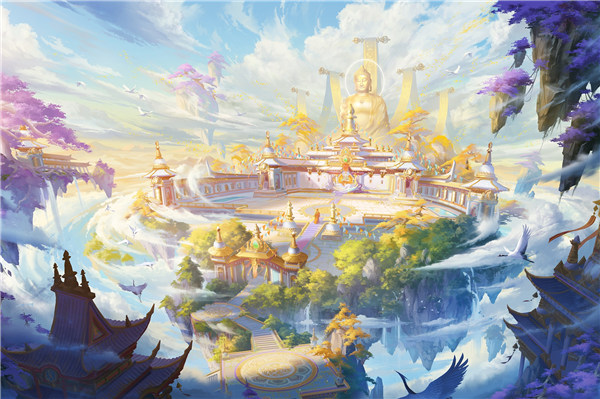Engaging with the past
By Wang Ru | China Daily | Updated: 2019-07-02 07:20

"In recent years, the business of Longquan swords has developed in a positive way," says Zhou.
This year, Zhou was invited to submit designs for swords to appear in Jade Dynasty. "We tried to keep the features of swords that were used during the Tang Dynasty (618-907) but incorporated some of the fairy tale elements and motifs of chivalry from the game into the design."
In addition to Longquan swords, some figures seen in Dunhuang's mural paintings and the historic Confucius Temple area of Nanjing were also added to the online mobile game, enabling players to become immersed in other aspects of Chinese heritage.
Zhou says the game is an ideal way to spread the message. "Since games are welcomed by young people, we can make them familiar with traditional culture as they play. It increases the number of channels available to us to spread knowledge about our cultural heritage."
Chen agrees that games are an engaging way to carry forward traditional culture, and he says its future looks bright.
Xia says she is always trying to think of new ways to promote traditional culture. "I find there are so many good things in traditional Chinese culture, and we should promote them better. We hope young people can get to know tourist attractions like the Confucius Temple and other places through the games, and then try to understand the culture behind them."
This combination is not only beneficial to traditional culture, but also to the gaming industry. "Everyone knows games are virtual, but we try to make players feel they are experiencing real history in our games. And real materials are needed to realize this goal - traditional Chinese culture is a treasure trove of these materials, "says Lu.
He also mentions that the trend toward blending games with cultural heritage in China started decades ago. However, he describes these early attempts as "vague", where aspects of traditional culture served merely as a background to the gameplay, and failed to offer a detailed or realistic experience. "Now we try to dig out details and divide them into small sections of culture, and focus on their unique cultural points, so that players can gain a deeper experience."
These games are also available to players overseas. According to Lu, "Some overseas players also have a strong interest in Chinese culture, but they may find it too difficult to understand. So we try to convey the culture in ways that they are familiar with to help them better understand."
Besides games, the digital protection of traditional culture appearing in cartoons, TV series and films is also important. Cai Zhi, a member of the Beijing Tsingshang Architectural Design and Research Institute, says people born in the 1990s and 2000s have a stronger interest in Chinese culture than those born in the 1970s and 1980s. "This is a direct impact of making traditional culture more accessible to young people through films and games.
"Games companies are also playing their part in shouldering the responsibility of protecting and recording traditional Chinese culture," says Cai.
























